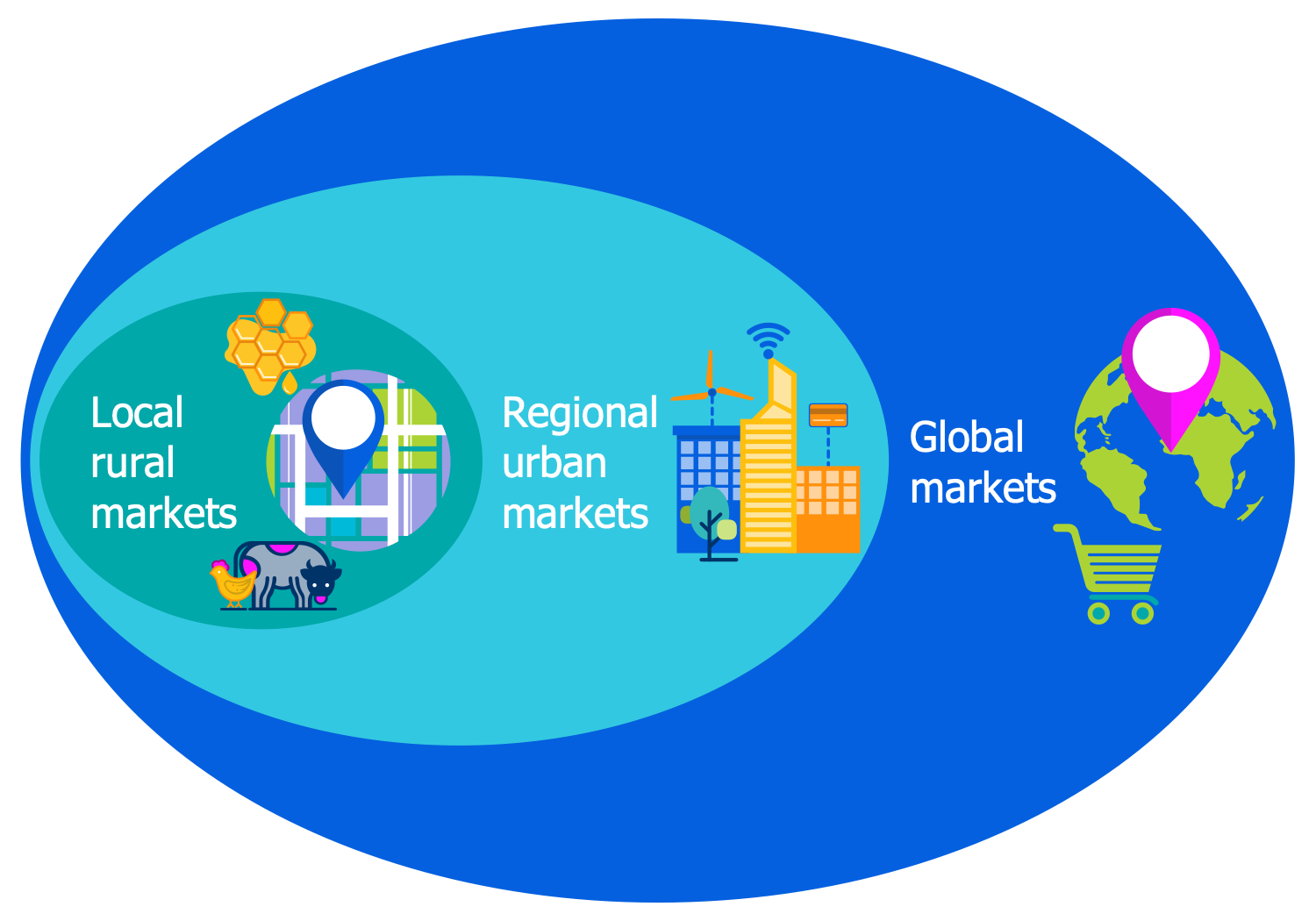Local vs Global: How Market Movements Impact Daily Life sets the stage for this enthralling narrative, offering readers a glimpse into a story that is rich in detail and brimming with originality from the outset.
As we delve into the intricate relationship between local and global market movements, we uncover a fascinating world where daily life is intricately intertwined with economic forces on various scales.
Local vs Global Market Movements
Local market movements refer to the fluctuations and changes in prices, demand, and supply of goods and services within a specific geographic region or community. These movements are influenced by factors such as consumer preferences, local economic conditions, government policies, and cultural trends.Global market movements, on the other hand, involve the interactions and changes in prices, demand, and supply of goods and services on a worldwide scale.
These movements are impacted by global economic trends, international trade agreements, geopolitical events, and currency fluctuations.
Impact on Daily Life
- Local market movements can have a direct impact on the cost of living for individuals within a specific community. For example, a shortage of locally produced goods may lead to price increases, affecting the budget of consumers.
- Global market movements can affect the prices of imported goods, energy costs, and even job opportunities in a particular region. For instance, an increase in oil prices due to global demand can result in higher transportation costs for goods and services.
- Local market movements can create opportunities for small businesses and entrepreneurs to thrive by catering to the specific needs and preferences of the local population. This can lead to the creation of jobs and economic growth within the community.
- Global market movements can impact the stock market, investments, and retirement savings of individuals worldwide. Fluctuations in global markets can influence the overall financial stability and future planning of individuals and families.
Factors Influencing Local Markets

Local markets are influenced by a variety of factors that can impact the supply and demand dynamics, as well as the overall economic environment. Understanding these key factors is essential for predicting market movements and making informed decisions.
Supply and Demand
Supply and demand play a crucial role in determining prices and quantities of goods and services in local markets. When the supply of a product increases while demand remains constant, prices tend to decrease. Conversely, when demand rises but supply stays the same, prices typically go up.
This delicate balance between supply and demand is constantly shifting and can be influenced by various external factors such as consumer preferences, production costs, and market competition.
- Changes in consumer preferences can lead to shifts in demand for certain products, impacting prices and sales volumes in the local market.
- Production costs, including raw material prices, labor costs, and transportation expenses, can affect supply levels and ultimately influence market prices.
- Market competition from both local and global players can drive changes in supply and demand dynamics, resulting in price fluctuations and market volatility.
Government Policies
Government policies and regulations can have a significant impact on local markets by directly influencing business operations, trade agreements, and overall economic stability. Policies related to taxes, tariffs, subsidies, and environmental regulations can shape market conditions and affect the behavior of market participants.
For example, an increase in import tariffs on certain goods can lead to higher prices for consumers in the local market, as businesses pass on the additional costs to maintain profit margins.
- Tax incentives and subsidies provided by the government can stimulate economic activity and boost local market growth by encouraging investment and innovation.
- Environmental regulations aimed at reducing carbon emissions or promoting sustainable practices can create new market opportunities for businesses that comply with these standards, driving changes in supply and demand for eco-friendly products and services.
- Trade agreements between countries can impact local markets by opening up new export opportunities or creating barriers to entry for foreign competitors, influencing market dynamics and pricing strategies.
Global Market Trends
Global market trends play a crucial role in shaping the economic landscape worldwide. These trends are influenced by various factors such as geopolitical events, economic policies, technological advancements, and consumer behavior. Analyzing these trends can provide valuable insights into the direction of the global economy and help individuals and businesses make informed decisions.
Impact of Geopolitical Events on Global Market Movements
Geopolitical events, such as political unrest, trade wars, and diplomatic tensions, have a significant impact on global market movements. For example, when tensions rise between two countries, it can lead to increased volatility in financial markets as investors become more risk-averse.
Trade policies and tariffs imposed by governments can also disrupt supply chains and affect the prices of goods and services, ultimately influencing market trends.
Interconnected Nature of Global Markets
Global markets are highly interconnected, with developments in one region often having far-reaching effects on other markets around the world. For instance, a financial crisis in one country can trigger a domino effect, causing instability in other economies. The rise of global trade and investment has further interconnected markets, making them more susceptible to external shocks and fluctuations.
Understanding this interconnected nature is essential for investors and policymakers to navigate the complexities of the global economy effectively.
Impact on Daily Life
Market movements have a significant impact on our daily lives, influencing everything from the prices we pay for goods and services to the availability of job opportunities. Understanding how market trends shape our daily experiences is crucial for making informed decisions and planning for the future.
Consumer Choices
Market movements affect everyday consumer choices in various ways. For example, when the price of oil rises, the cost of transportation increases, leading to higher prices for goods at the grocery store. This can influence consumers to seek alternative, more affordable options or adjust their spending habits accordingly.
Job Markets
Local and global economic trends play a significant role in shaping job markets. During times of economic growth, companies may expand and create more job opportunities, while economic downturns can lead to layoffs and job losses. Understanding these trends can help individuals make informed decisions about their career paths and job prospects.
Personal Financial Planning
Understanding market movements is essential for personal financial planning. Being aware of how economic factors impact investments, savings, and overall financial stability can help individuals make strategic decisions to protect and grow their wealth. Whether it's adjusting investment portfolios or preparing for potential job market changes, staying informed about market movements is key to financial success.
Closing Notes

In conclusion, the intricate dance between local and global market movements reveals a tapestry of influences that shape our daily lives in profound ways. By understanding these dynamics, individuals can navigate the complexities of the market with greater insight and foresight.
FAQ Resource
What are the main differences between local and global market movements?
Local market movements are more influenced by regional factors and local demand-supply dynamics, while global market movements are impacted by international events and trends.
How do government policies affect local markets?
Government policies can directly influence local markets through regulations, taxes, subsidies, and trade agreements that shape the business environment and consumer behavior.
Why is it important to understand market movements for personal financial planning?
Understanding market movements is crucial for personal financial planning as it allows individuals to make informed decisions regarding investments, savings, and expenditures based on economic trends.
